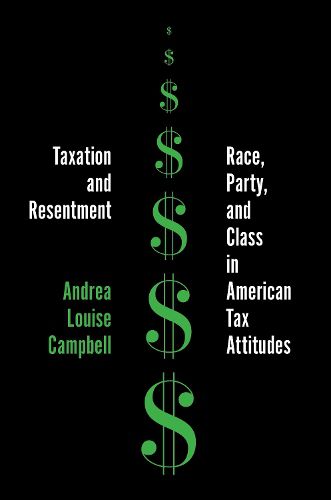Readings Newsletter
Become a Readings Member to make your shopping experience even easier.
Sign in or sign up for free!
You’re not far away from qualifying for FREE standard shipping within Australia
You’ve qualified for FREE standard shipping within Australia
The cart is loading…






Why Americans favor progressive taxation in principle but not in practice
Most Americans support progressive taxation in principle, and want the rich to pay more. But the specific tax policies that most favor are more regressive than progressive. What is behind such a disconnect? In this book, Andrea Louise Campbell examines public opinion on taxation, exploring why what Americans favor in principle differs from what they accept in practice. Campbell shows that since the federal income tax began a century ago, the rich have fought for lower taxes through reduced rates and a complicated system of tax breaks. The resulting complexity leaves the public confused about who benefits from the convoluted tax code, and leads to tax preferences that are driven by factors other than principles or interests.
Campbell argues that tax attitudes vary little by income, or by party, as some Democrats, more Republicans, and even more independents want most taxes decreased. Instead, white opinion on nearly every tax is racialized. Many do not realize the rich benefit the most from tax breaks, attitudes toward which are racialized, too. And among Black and Hispanic Americans, long subject to government coercion, greater support for government spending is not matched by greater support for taxation. Everyone has a reason to dislike taxes, which helps antitax Republicans win votes-and helps the rich in their long campaign to get their own taxes reduced and undermine progressivity.
$9.00 standard shipping within Australia
FREE standard shipping within Australia for orders over $100.00
Express & International shipping calculated at checkout
Why Americans favor progressive taxation in principle but not in practice
Most Americans support progressive taxation in principle, and want the rich to pay more. But the specific tax policies that most favor are more regressive than progressive. What is behind such a disconnect? In this book, Andrea Louise Campbell examines public opinion on taxation, exploring why what Americans favor in principle differs from what they accept in practice. Campbell shows that since the federal income tax began a century ago, the rich have fought for lower taxes through reduced rates and a complicated system of tax breaks. The resulting complexity leaves the public confused about who benefits from the convoluted tax code, and leads to tax preferences that are driven by factors other than principles or interests.
Campbell argues that tax attitudes vary little by income, or by party, as some Democrats, more Republicans, and even more independents want most taxes decreased. Instead, white opinion on nearly every tax is racialized. Many do not realize the rich benefit the most from tax breaks, attitudes toward which are racialized, too. And among Black and Hispanic Americans, long subject to government coercion, greater support for government spending is not matched by greater support for taxation. Everyone has a reason to dislike taxes, which helps antitax Republicans win votes-and helps the rich in their long campaign to get their own taxes reduced and undermine progressivity.